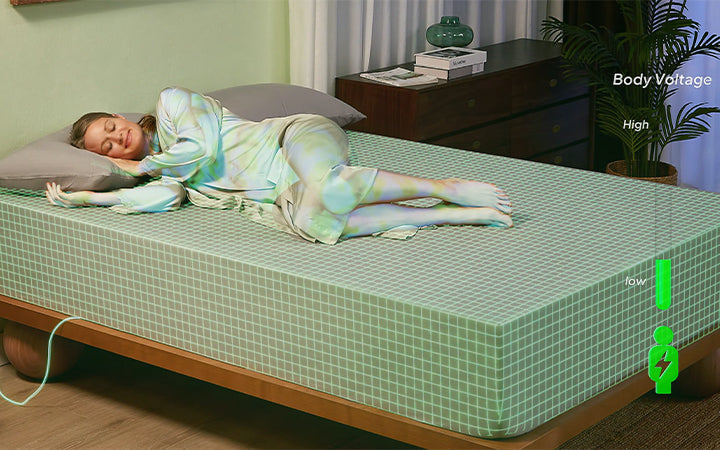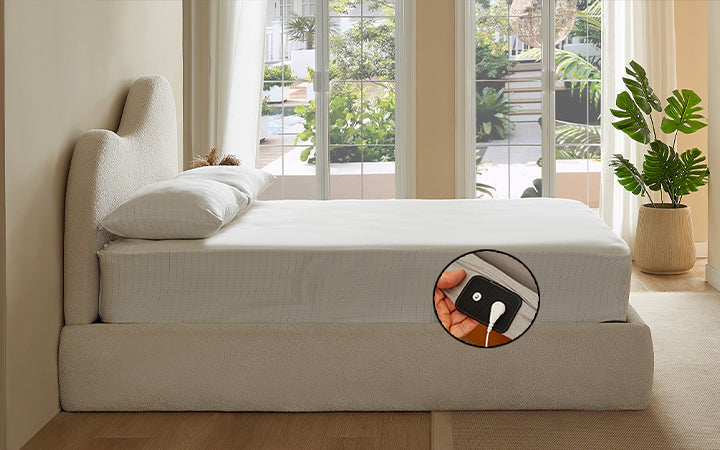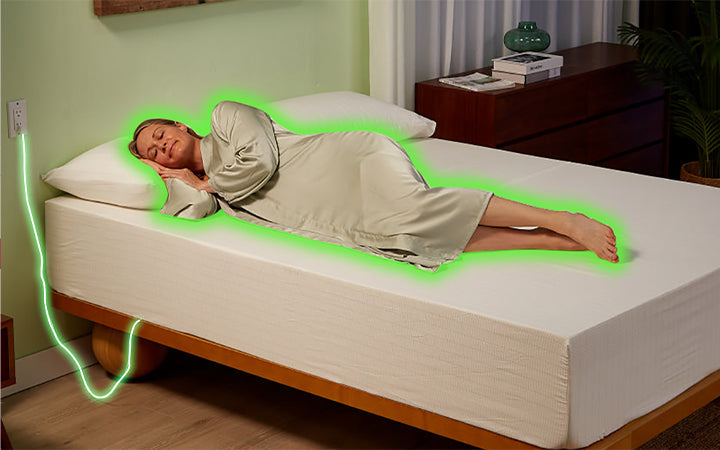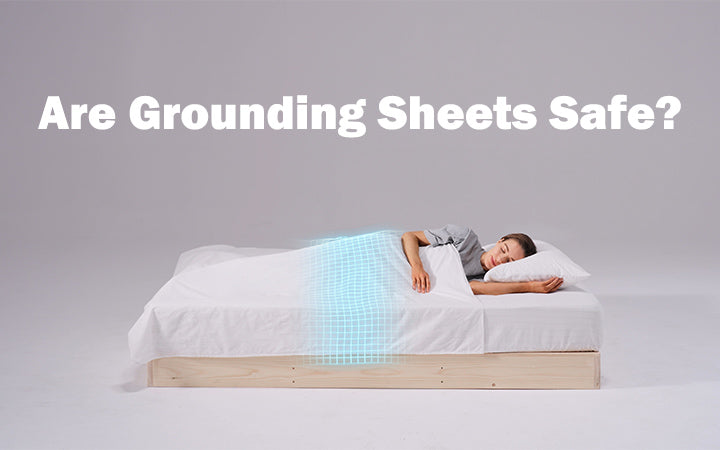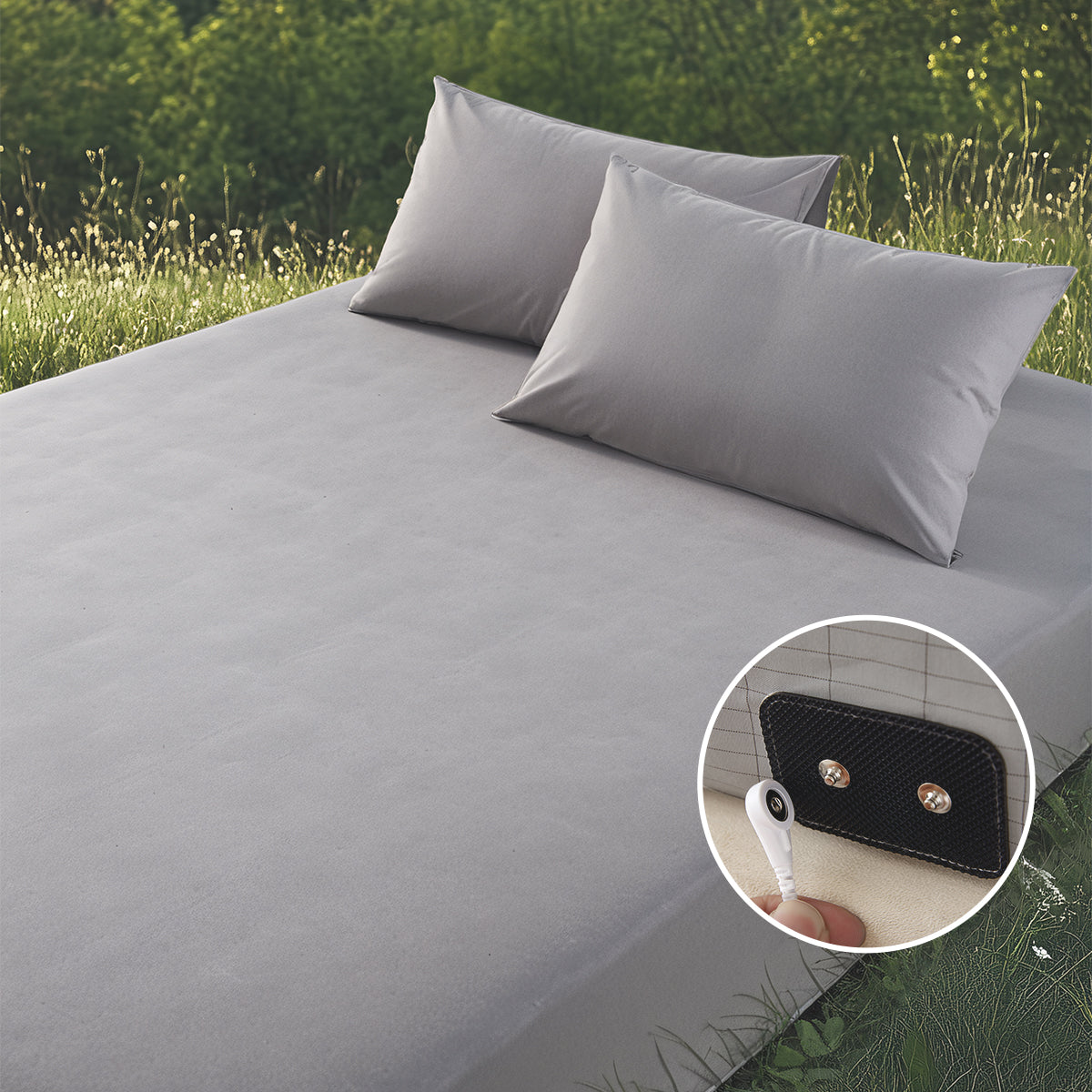How Long Do Grounding Sheets Typically Last Before Needing Replacement?
If you have a grounding sheet or want to get one to sleep better, you may be curious about how long it will last. Grounding sheets are made of special materials that allow them to do more than just look good. Normal sheets only get worn down for looks. This guide talks about what makes your grounding sheet last longer, how long it should last, when it's time to get a new one, and how to make it last longer.
How Grounding Sheets Work and Fail
A grounding sheet works by making a conductive link between your body and the ground, which is the same as going barefoot on the ground. These functions depend on the special conductive threads that are woven into the fabric. These threads are generally made of silver, carbon, or stainless steel.
The most important thing about figuring out how long your grounding sheet will last is not how the cloth looks but whether these conductive threads still work. The sheet is no longer useful once the conductivity drops by a large amount.
Conductivity typically declines for three main reasons:
- Physical Damage: The conducting threads can break when they are stretched, rubbed while sleeping, or washed.
- Oxidation: Metal threads, especially silver ones, tarnish naturally when they come into contact with air, water, and cleaning chemicals. This layer of rust makes the metal less conductive.
- Residue Buildup: The buildup of insulating materials on the conductive threads may not be as visible, but it is just as important. Mineral buildup from hard water, soap residue, skin oils, and chemicals from fabric softeners are some of these things. These make a wall that stops the electrical material from connecting to your skin.

Practical Factors That Affect Your Grounding Sheet's Lifespan
Now that we understand how conductivity works and fails, let's look at the specific everyday factors that determine how quickly your grounding sheet will wear out:
Usage and Washing Frequency
The more you use your sheet, the more it's exposed to friction, body oils, and sweat. This typically means you'll need to wash it more frequently. Each wash cycle puts stress on the fabric and exposes it to water and detergents, gradually contributing to wear over time.
Washing and Care Practices
This is the biggest factor in how long your grounding sheet will last. The chemicals in detergents, bleach, and fabric softeners can directly damage conductive threads or coat them with insulating residues. Water temperature and mechanical agitation during washing and drying also contribute to physical stress on the conductive elements. Harsh washing practices can reduce a sheet's effective lifespan from years to just months.
Skin Products
Lotions, creams, and oils applied before bed transfer to your sheet during sleep. These products can create persistent buildup on the conductive threads that accumulates over time. Some products contain ingredients that may react with the metal threads, particularly silver ones, accelerating oxidation or creating compounds that reduce conductivity.
Water Quality
Hard water leaves mineral deposits on fabrics after washing. These minerals build up over time with each wash cycle, creating a layer that can significantly reduce conductivity. The mineral scale acts as an insulator, gradually diminishing the sheet's ability to create an effective grounding connection.
Initial Product Quality and Materials
The starting quality significantly affects potential lifespan. Different conductive materials have different durability profiles - silver offers excellent conductivity but tarnishes more easily, while carbon may be more chemically resistant but possibly less conductive. The density and pattern of conductive threading also affect how quickly function degrades when some threads inevitably fail.
Physical Wear and Tear
Daily use naturally creates friction and stress on the fabric. Sleeping movements, contact with jewelry, pet claws, or rough surfaces lead to abrasion, thinning, snags, or tears. These physical damages often affect the conductive grid, creating areas where the grounding connection is compromised. Even minor damage to critical conductive pathways can render large sections of the sheet non-functional.
How Long Do Grounding Sheets Typically Last
Most grounding sheets last between 1 to 3 years with proper care. However, this timeframe can vary widely depending on the factors we've discussed above. Here's what you should know:
Average Lifespan
Based on what other users have said and what the industry knows, a grounding sheet should last between 3 and 6 months if it is properly kept. If you use it regularly and follow the care instructions, this guess is based on that. However, GroundingTime's grounding fitted sheet, due to its excellent material, can last up to 2 years if it is properly kept.

What Manufacturers Say
For specific instructions, look at the product information, the packaging, or the website of the maker. Based on their tests and products, some companies give you an idea of how long something will last. With this knowledge, you can get a better idea of what to expect from this sheet.
Warranty Coverage Limits
A guarantee that lasts for one to two years comes with most good grounding sheets. Most of the time, these warranties cover problems with the way the item was made, like connection snaps or seam tears that don't work right. However, they don't cover regular wear and tear or damage from bad care. Most importantly, guarantees don't usually cover loss of conductivity caused by washing something wrong. The warranty period is the shortest amount of time that the manufacturer thinks the sheet will work properly when used as advised.
Signs That Your Grounding Sheet Needs Replacement
Although most grounding sheets only last 1-3 years, your sheet might need replacement earlier or could last longer depending on your care and usage. Here are the clear signs to watch for:
Tears, Holes, or Damaged Connection Points
The most obvious sign is visible damage. Look for holes, tears, significant fabric thinning that exposes conductive threads, or damage to the snap connector where the cord attaches. Any of these problems can compromise the sheet's grounding function.
Failed Conductivity Test
This is the most reliable way to check if your sheet still works. You'll need a multimeter that measures resistance (Ohms, Ω) or continuity, or a dedicated grounding product tester.
To test your sheet:
- Set the multimeter to continuity mode (often shown as a sound wave symbol) or resistance mode (Ω, starting with a low range like 200 Ohms)
- Touch one probe to the connection snap on the sheet
- Touch the other probe to different spots on the sheet's conductive surface
- Also test between two points on the sheet surface, about a foot or two apart A working sheet should show very low resistance (just a few Ohms) or register continuity (often with a beep). If you get high resistance readings (hundreds or thousands of Ohms), an "OL" (Open Loop) reading, or no continuity beep, the sheet's conductive pathway is failing and needs replacement.

Stubborn Stains That Won't Wash Out
While not directly measuring conductivity, persistent stains that don't come out after proper washing may indicate chemical buildup or material breakdown that affects the sheet's performance.
Benefits You Once Felt Have Disappeared
If you previously noticed specific benefits from your grounding sheet (better sleep, less pain) and these effects have faded over time despite proper setup and consistent use, your sheet might be losing conductivity. This sign is subjective, though, and could be affected by other factors in your life or health. Always confirm with a conductivity test.
How to Maximize the Lifespan of Your Grounding Sheet
With the right care, you can help your grounding sheet last longer and maintain its effectiveness. Here are practical ways to extend its life:
Follow the Manufacturer's Instructions
The care guidelines that come with your sheet are designed specifically for its materials. Different brands may use different conductive elements that need specific care, so always check the instructions that came with your sheet.
Use Gentle Detergents
Stick to mild, liquid detergents without additives. Avoid powder detergents, bleach, whitening agents, fabric softeners, and products with strong essential oils. These can damage conductive threads or leave insulating residues.
Don't Overwash
While keeping your sheet clean is important, washing too frequently speeds up wear. Aim to wash your grounding sheet about as often as your regular sheets, or even slightly less if it's not getting visibly soiled.
Wash Separately and Gently
Wash your grounding sheet by itself or only with similar-colored linens. Keep it away from clothes with zippers, hooks, or rough textures that might catch and damage the conductive threads.
Dry Properly
Line drying is best for preserving conductivity. If you must use a dryer, use the lowest heat setting possible. High heat can damage the conductive fibers over time.
Limit Body Products at Bedtime
Apply lotions, oils, or creams well before getting into bed so they have time to absorb into your skin rather than transferring to your sheet.
Check Conductivity Every Few Months
Use a multimeter to test your sheet's conductivity every 3-6 months. This helps you spot declining performance early, before the sheet stops working completely.

Protect Your Grounding Sheet Investment!
The effectiveness of your grounding sheet depends on how well you take care of its conductive qualities. With the right care, they should last between one and three years. You can make it last a lot longer by washing it less often, drying it on low heat, using mild soaps only, and limiting the amount of body products you use before bed. Every few months, using a voltmeter to check the conductivity gives you peace of mind and lets you know if performance is going down before it fails completely.

